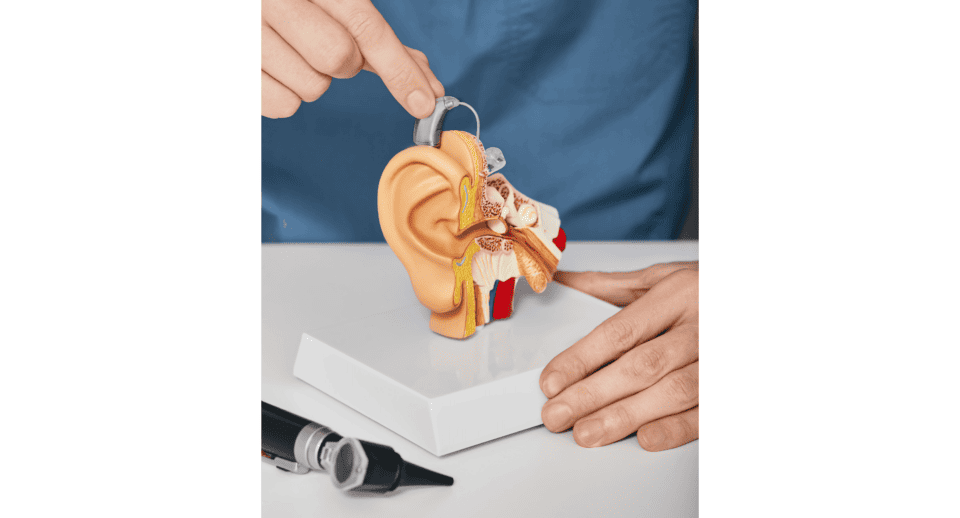Hearing loss is a common condition, but many people have myths and misconceptions about hearing loss. Let’s debunk 10 hearing myths and look at the truths behind these often misunderstood aspects of auditory health.
Myth 1: Only Older Adults Experience Hearing Loss
One prevalent misconception is that hearing loss is exclusively an age-related condition. While it’s true that age-related hearing loss is common, hearing issues can affect individuals of all ages. Exposure to loud noises, genetic factors, and certain medical conditions can contribute to hearing loss in younger populations. Regular hearing check-ups are essential for everyone, regardless of age.
Myth 2: Hearing Aids Make Hearing Perfect
Hearing aids are remarkable devices that can significantly improve hearing, but they don’t restore hearing to perfection. These devices amplify sounds, making them clearer and more audible, but they may not completely replicate the natural hearing experience. Managing expectations and understanding the capabilities of hearing aids is crucial for those considering these devices.
Myth 3: Hearing Loss Only Affects the Ears
Hearing loss is often mistakenly understood as an issue with the ears. However, it can have far-reaching effects on various aspects of health, including cognitive function, physical health, and mental well-being. Research suggests a link between untreated hearing loss and conditions such as cognitive decline and increased risk of dementia. Acknowledging the broader impact of hearing loss underscores the importance of timely intervention.
Myth 4: Hearing Loss Can Be Cured by Cleaning the Ears
A common misconception is that hearing loss can be remedied by cleaning the ears. While earwax buildup can contribute to temporary hearing issues, it’s not the sole cause of hearing loss. Some forms of hearing loss result from damage to the inner ear or auditory nerve, which cannot be resolved by routine ear cleaning. Seeking professional advice is crucial for accurate diagnosis and appropriate treatment.
Myth 5: Hearing Loss Is Irreversible
Contrary to popular belief, not all forms of hearing loss are irreversible. While some types, such as sensorineural hearing loss, may be permanent, others, like conductive hearing loss, can be treated. Conductive hearing loss often stems from issues in the ear canal or middle ear, and medical interventions or surgeries may restore hearing in such cases. Early detection and intervention play a key role in the potential reversibility of hearing loss.
Myth 6: Hearing Loss Only Affects Communication
While communication challenges are a significant aspect of hearing loss, its impact extends beyond conversations. Hearing-impaired individuals may experience social isolation, strained relationships, and diminished quality of life. Recognizing the broader consequences of hearing loss emphasizes the importance of comprehensive support and understanding.
Myth 7: Hearing Loss Is Always Accompanied by Pain
Unlike some health conditions, hearing loss typically does not cause physical pain. Instead, it manifests through subtle signs such as difficulty understanding speech, turning up the volume excessively, or feeling that others are mumbling. Dismissing hearing concerns due to the absence of pain can delay crucial interventions. Regular hearing check-ups are essential for early detection and timely management.
Myth 8: Hearing Aids Are Bulky and Obvious
Advancements in hearing aid technology have dispelled the myth that all hearing aids are bulky and conspicuous. Modern hearing aids come in various styles and sizes, including discreet, nearly invisible options. Some devices are designed to sit inside the ear canal, making them virtually undetectable. Embracing the diversity of hearing aid options encourages individuals to explore solutions that align with their preferences and lifestyle.
Myth 9: Hearing Loss Is an Inevitable Consequence of Aging
While age-related hearing loss is common, it is not an inevitable consequence of aging. Not everyone will experience significant hearing decline as they grow older. Genetics, lifestyle factors, and protective measures against noise exposure can influence an individual’s susceptibility to hearing loss in their later years. Proactive hearing care, including regular check-ups and noise protection, can contribute to maintaining optimal hearing health throughout life.
Myth 10: Hearing Tests Are Only Necessary If You Have Noticeable Hearing Issues
Another prevalent misconception is that hearing tests are only necessary when noticeable hearing issues arise. In reality, regular hearing check-ups are essential for monitoring auditory health and detecting potential issues early, often before noticeable symptoms occur. Early intervention can prevent further damage and enhance the effectiveness of treatment options.
Trust the Experts
Dispelling hearing myths is crucial for fostering a comprehensive understanding of auditory health. By challenging these misconceptions, you can make informed decisions about your hearing care. Visit us today to find out more.

